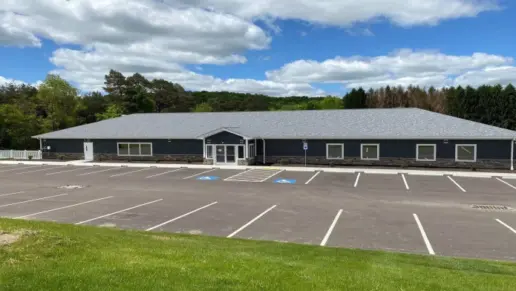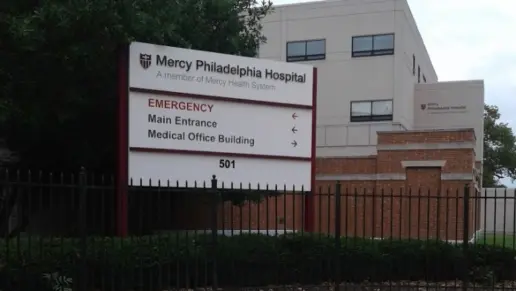Do not send your kids to this place. These people use something like addiction and your loved ones sickness as leverage to push their religion. They abuse you and make you feel less than human. Kris McFadden voted for Donald Trump and watched Fox News yet has an a wife that ...
About Pennsylvania Adult and Teen Challenge
Pennsylvania Adult and Teen Challenge is a nonprofit, faith based drug and alcohol addiction treatment center for adults and adolescents in Rehrersburg, Pennsylvania. They provide mental health resources, psychiatric services, training, and aftercare. Available programs include crisis management, medically assisted detoxification, inpatient and outpatient programming, and aftercare support. Specialized services are available for clients with co-occurring conditions.
Medically assisted detox helps individuals with severe addictions comfortably detoxify and remove the substances from their bodies while prioritizing safety and comfort. You’re medically supervised and may receive FDA-approved medication to support the process. Following detox, they may be referred to aftercare support, such as residential treatment.
The residential programs offer structured drug and alcohol addiction treatment for short and long-term periods. The short term program lasts for 30 days and features intensive services to uncover the underlying causes of addiction. The long term program offers support and guidance over an extended period. It also offers more comprehensive activities, such as ongoing counseling, spiritual guidance, ministry opportunities, individual and group sessions, and family support.
Multiple levels of outpatient counseling provides a faith based approach to unlearning self destructive behaviors and recommitting to a relationship with a higher power. Treatment plans are customized to meet the needs of each client and available services include scheduled recreational activities, family programming, counseling, aftercare planning, chapel time, outdoor activities, and spiritual guidance and mentorship.
Before completing treatment, you’ll meet with your care team and family to determine a comprehensive aftercare and relapse prevention plan. That may include attending outpatient support groups, and regular progress meetings with their treatment counselors and/or pastor.
They offer a variety of payment options, including self pay, and private insurance. They may be in-network with most private insurance plans. Verify your coverage with your individual provider because out of network benefits could vary.
Pennsylvania Adult and Teen Challenge is accredited by the Commission on Accreditation of Rehabilitation Facilities (CARF).
Latest Reviews
Gallery
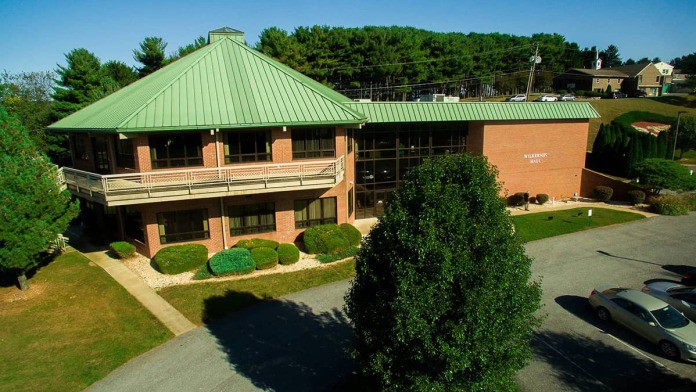
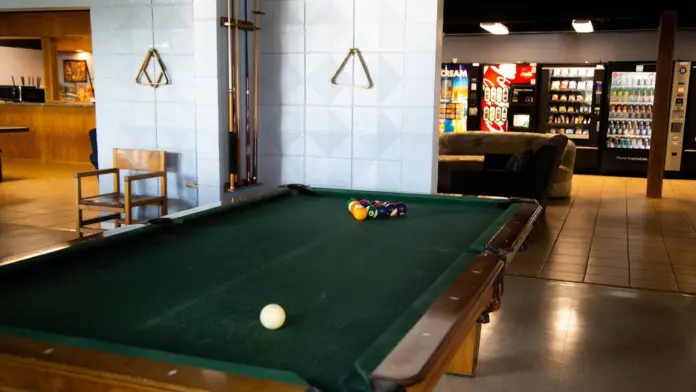

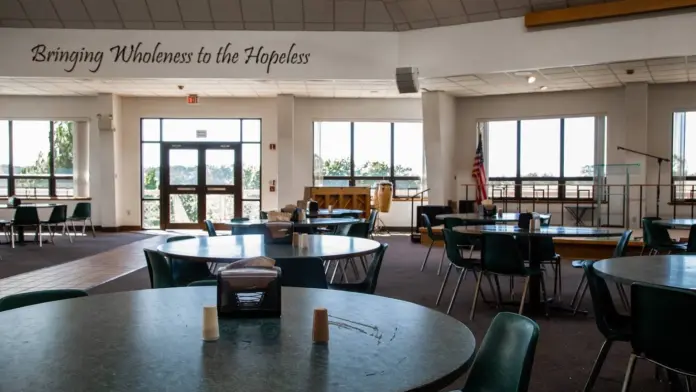
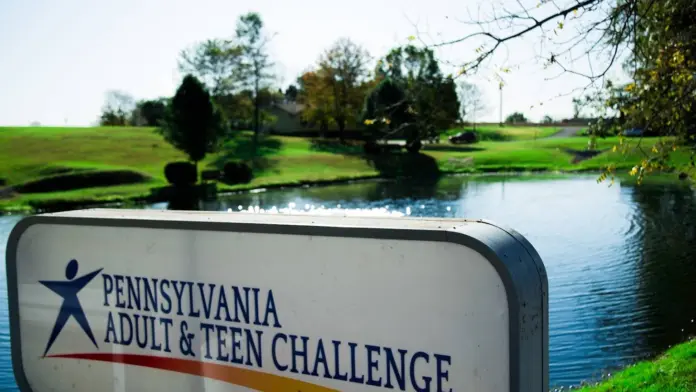
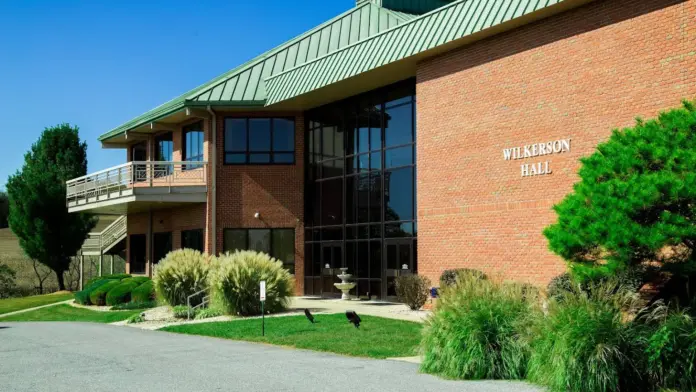
Location
Accepted Insurance
Other Forms of Payment
Self-pay involves paying for treatment out of your own pocket. You can use savings or credit, get a personal loan, or receive help from family and friends to fund your treatment. If you don't have insurance or your insurance plan doesn't cover a specific program, self-pay can help ensure you still get the care you need.
Sliding scale payments are based on a client's income and family size. The goal is to make treatment affordable to everyone. By taking these factors into account, addiction recovery care providers help ensure that your treatment does not become a financial burden to you or your family, eliminating one barrier to care.
Medicare is a federal program that provides health insurance for those 65 and older. It also serves people under 65 with chronic and disabling health challenges. To use Medicare for addiction treatment you need to find a program that accepts Medicare and is in network with your plan. Out of pocket costs and preauthorization requirements vary, so always check with your provider.
Medicaid is a state based program that helps lower-income individuals and families pay for healthcare. Medicaid covers addiction treatment so those enrolled can use their coverage to pay for rehab. When a program accepts Medicaid the client often pays very little or nothing out of their own pocket.
Addiction Treatments
Levels of Care
Treatments
The goal of treatment for alcoholism is abstinence. Those with poor social support, poor motivation, or psychiatric disorders tend to relapse within a few years of treatment. For these people, success is measured by longer periods of abstinence, reduced use of alcohol, better health, and improved social functioning. Recovery and Maintenance are usually based on 12 step programs and AA meetings.
Drug rehab in Pennsylvania is devoted to the treatment of addiction. Levels of care, treatment methods, and settings differ, but the aim of each program is to end drug dependency and empower participants to achieve long-term recovery.
A combined mental health and substance abuse rehab has the staff and resources available to handle individuals with both mental health and substance abuse issues. It can be challenging to determine where a specific symptom stems from (a mental health issue or an issue related to substance abuse), so mental health and substance abuse professionals are helpful in detangling symptoms and keeping treatment on track.
Opioid rehabs specialize in supporting those recovering from opioid addiction. They treat those suffering from addiction to illegal opioids like heroin, as well as prescription drugs like oxycodone. These centers typically combine both physical as well as mental and emotional support to help stop addiction. Physical support often includes medical detox and subsequent medical support (including medication), and mental support includes in-depth therapy to address the underlying causes of addiction.
Programs



Clinical Services
Cognitive Behavioral Therapy (CBT) is a therapy modality that focuses on the relationship between one's thoughts, feelings, and behaviors. It is used to establish and allow for healthy responses to thoughts and feelings (instead of unhealthy responses, like using drugs or alcohol). CBT has been proven effective for recovering addicts of all kinds, and is used to strengthen a patient's own self-awareness and ability to self-regulate. CBT allows individuals to monitor their own emotional state, become more adept at communicating with others, and manage stress without needing to engage in substance abuse.
Dialectical Behavior Therapy (DBT) is a modified form of Cognitive Behavioral Therapy (CBT), a treatment designed to help people understand and ultimately affect the relationship between their thoughts, feelings, and behaviors. DBT is often used for individuals who struggle with self-harm behaviors, such as self-mutilation (cutting) and suicidal thoughts, urges, or attempts. It has been proven clinically effective for those who struggle with out-of-control emotions and mental health illnesses like Borderline Personality Disorder.
The student and family enrichment department is designed to develop partnerships that promote successful recovery for their students and healthy lives for their families. You are not the cause of your loved ones addiction, you cannot control it and you cannot cure it but you can be empowered by support, education and communication.
Group therapy is any therapeutic work that happens in a group (not one-on-one). There are a number of different group therapy modalities, including support groups, experiential therapy, psycho-education, and more. Group therapy involves treatment as well as processing interaction between group members.
In individual therapy, a patient meets one-on-one with a trained psychologist or counselor. Therapy is a pivotal part of effective substance abuse treatment, as it often covers root causes of addiction, including challenges faced by the patient in their social, family, and work/school life.
Life skills trainings involve all the skills a person must have in order to function successfully in the world. These include time management, career guidance, money management, and effective communication. Truly successful addiction recovery is based on the ability to not only live substance-free, but to thrive. Life skills teaches the practical necessities of functioning in society, which sets clients up for success in life, and therefore sobriety.
Motivational Interviewing (MI) is a clinical approach to helping people with substance abuse issues and other conditions shift behavior in positive ways. It is more goal-oriented than traditional psychotherapy, as MI counselors directly attempt to get clients to consider making behavioral change (rather than wait for them to come to conclusions themselves). Its primary purpose is to resolve ambivalence and help clients become able to make healthy choices freely.
Nicotine Replacement Therapy (NRT) is a way of getting nicotine into the bloodstream without smoking. It uses products that supply low doses of nicotine to help people stop smoking. The goal of therapy is to cut down on cravings for nicotine and ease the symptoms of nicotine withdrawal.
Amenities
-
Private Setting
-
Lakeside
-
Private Transportation
-
Recreation Room
-
Day School
Accreditations

The National Association of Addiction Treatment Providers (NAATP) is a professional association that represents organizations in the field of addiction services. Founded in 1978, NAATP's mission is to advance addiction services and ensure that high-quality addiction treatment is available and accessible.
NAATP Member: Yes

The Commission on Accreditation of Rehabilitation Facilities (CARF) is a non-profit organization that specifically accredits rehab organizations. Founded in 1966, CARF's, mission is to help service providers like rehab facilities maintain high standards of care.
CARF Accreditation: Yes
Accreditation Number: 273972
Contact Information
33 Teen Challenge Road
Rehrersburg, PA 19550
